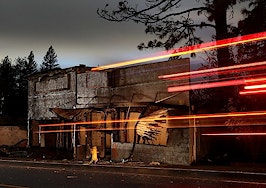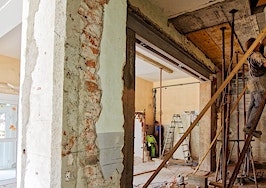It will come as no surprise to anybody that cities on America’s coasts are very expensive, but a new study shows that their affordability problems are made worse by the skyrocketing costs of labor that’s needed to actually build more housing.

Issi Romem
The study, from BuildZoom chief economist Issi Romem, found that since 2004 construction costs in the U.S. have risen 23.6 percent. Though that increase was initially driven by the cost of materials, it has more recently been the result of rising labor costs.
Those labor costs, however, are not distributed evenly across the U.S. Romem’s findings show that while construction materials have similar costs from place to place, labor is significantly more expensive in pricy cities. So, the most expensive metros for construction were New York City, San Francisco, Chicago, Honolulu, Anchorage and Boston.
The ten least expensive cities for construction are all located in the South.

Credit: BuildZoom
It makes intuitive sense that labor would cost more in New York than Little Rock, Arkansas (which is number six on Romem’s list of least expensive cities), but the consequences of this situation play out in surprising ways.
For starters, in expensive cities the high cost of labor can shift projects that might barely have been profitable “from being in the black to being in the red,” Romem told Inman. That in turn means fewer homes get built, reducing supply and making housing ever more expensive. And as a result, laborers have to pay more for their homes and need greater compensation to make ends meet.
“That can feed into what I call a vicious cycle,” Romem said.
Romem also found that construction is more expensive in cities that lean more toward renovation than new projects. He explained that renovation is more labor intensive.
“Part of it is the fact that you have to be careful not to spoil what’s there,” he said.
Significantly, the expensive, often-coastal cities were also the ones where construction focused more intensely on renovation than new construction.

Credit: BuildZoom
One of the drivers in the trend toward more expensive labor and more costly coastal cities has been changing building patterns. Romem pointed out that in the period following World War II, American cities tended to grow outward. But since 1970, “they have slowed down the rate at which they sprawl,” Romem said.
That means a smaller supply of housing even in the face of increasing demand.
A solution to dwindling supply and a lack of sprawl, Romem said, would be “gradually densifying a large amount of area” in big expensive cities. That solution would require overcoming numerous barriers — many cities are currently zoned overwhelmingly for single family homes, and many people vehemently oppose change — but it could help over the longterm.
Romem also said labor costs could also be controlled by new building techniques, such as prefabrication or taller wood construction, that might be more efficient and would draw on a pool of workers who live outside of costly cities.
In the end though, more efficient construction, as well as densification, will take time to actually bear fruits in expensive cities.
“The solution wouldn’t be immediate,” Romem said. “It would require some paradigm shifts, where maybe housing isn’t built in the next two years but in the next 20 or 30 years. It would be a long affair.”











